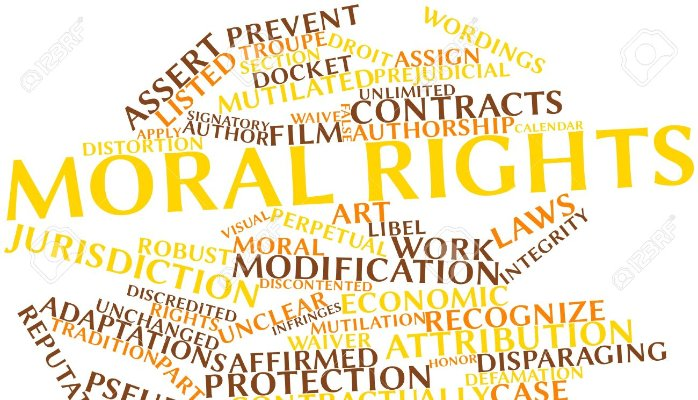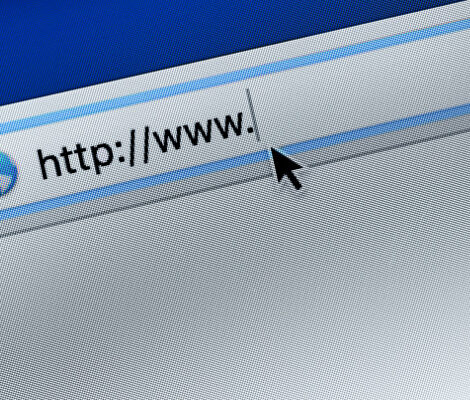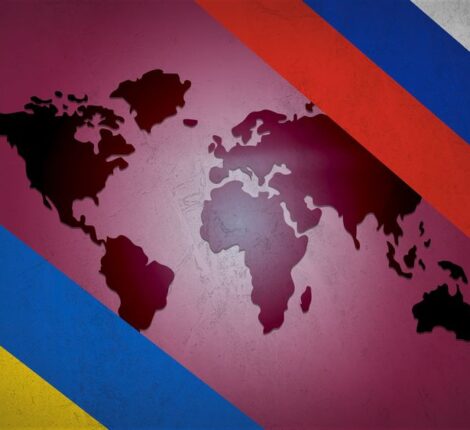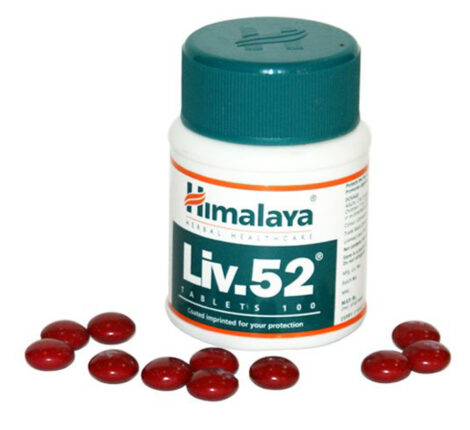Moral Rights of An Author Under Copyright Law
Introduction
Copyrights are exclusive rights given to an author. Copyrights are granted to artistic, literary, cinematographic, and dramatic works. The rights provided under copyrights to the author are economic rights and moral rights.
Economic rights are rights that are related to money. It includes reproduction, translation and other such acts done in respect of the author’s work. A third party has no right to waive off the economic rights of the author. In other words, no person can reproduce, translate, sell any work of the author without due license from the author.
Moral rights are the rights that are attached to one’s conscience. A work by an author is considered to be a part of himself, his soul. And hence copying a work of an author without due permission is morally wrong. Moral rights stay with the person for as long as the copyright lasts. Even if the author sells his economic rights or licenses his copyrights to another person or entity like a publisher or a publishing house, the moral rights of the author will still persist.
Types of Moral Rights
There are two basic types of Moral Rights given to an author:
1. Right of Paternity – Right of paternity is also called the right of attribution. This right attributes the authorship of an individual. In simpler words, it is the crediting of authors, sculptors, artists, cinematographers etc. for their work. This is the right of an author to claim his authorship. This right determines how, where and when a person is to be credited as an author. It protects the rights of an author in three stages, namely:
– Publicity of work: The author gets the right to let his name be known publicly as the author of that particular work. If the author wishes so, his name is to be publicized everywhere his work is used, be it at an advertisement or using a part of his work as an example.
– Plagiarism of work: The author gets a right to prevent plagiarism of his or her work. No person can put his name under a work of another. If the whole work or any part of it is copied by another person without giving due credit to the author, it will amount to plagiarism.
– Wrongful attribution: The author can prevent anybody from wrongfully attributing him as the author of a work that he has not been a part of. This is especially useful in case where there is a controversial work and the person is attributed as an author even though he did not contribute for the same.
In addition to the above rights, the right of paternity gives the authors exclusive rights to remain anonymous. The authors can choose to not reveal their names. Or in certain cases could be named different from their actual names. In both the cases, the right does not prevent a third party from disclosing the author’s names.
2. Right of Integrity – Right of integrity is a kind of moral right which deals with the mutilation, distortion, modification or such other acts to the author’s work. This right is based on the understanding that an author’s work is a part of his personality and mutilation or any kind of modification to his work is like a mutilation of his personality, honor and identity. This right prevents a third party from altering or modifying the whole or any part of a work without a permission from the author of the said work. This prevention is irrespective of the deemed modification having negative or positive impact on the author.
In the case of Amar Nath Seghal v. Union of India, the Union of India commissioned Amar Nath Seghal to construct a bronze mural for Vigyan Bhavan in New Delhi. After a few years, the mural was taken down without the consent of Amar Nath Seghal. Amar Nath then approached the court contending that destruction of his work amounted to mutilation of his work and hence prejudicial to his reputation. The court held that the destruction of mural amounted to infringement of the author’s right to integrity.
India’s position in Moral Rights
In India, moral rights of an author are protected under Section 57 of the Copyright Act, 1957. According to the provision, the author has the following rights:
– To claim authorship of the work
– To restrain any kind of mutilation, distortion or other modifications or to claim damages in case of any mutilation, modification or distortion of the work.
In the case of K.P.M Sundaram v. Rattan Prakashan Mandir, the Hon’ble Delhi High Court held that the word “or other modifications” is to be considered ejusdem generes the words like mutilation and destruction. The court also opined that such modification should be not such that the original and the modified works are completely different.
It is important to note that the provision requires that acts such as mutilation, modification or destruction take place during the time period in which the copyright protection is available to the author or the creator.
This provision does not apply in respect of any adaptations by a possessor of a computer program, or utilization and making extra copies of the same in case of any loss. A computer program, according to Section 2(ffc) includes any words, codes, schemes, audio medium which is capable of being understood by a computer in order to run according to the said command. A failure to display a work on the whole or failure to display it to the satisfaction of the creator or the author cannot be said to be an infringement under Section 57.
Previously, the moral rights were not waivable, but in the case of Sartaj Singh Pannu v. Gurbani Media Pvt Ltd & Anr, the Hon’ble Delhi High Court held that the moral rights of an author can be waived as long as the waiver is voluntary. Hence, if the waiver of the moral rights is voluntary, one can waive off.
Infringement of Moral Rights
When the rights available to the authors under Section 57 of the Copyright Act, 1957 are violated, the moral rights of that author are said to have been violated. That is to say that if there is a wrongful claim of authorship or if there is a modification or mutilation of any work of the author, then the author’s moral rights is said to be infringed. For such an infringement, the following civil remedies are granted:
1. Injunction – the courts sometimes grant injunction for an infringement of moral rights.
In KPM Sobharam v. M/s Rattan Prakashan Mandir, the court ordered an injunction restraining the defendants from publishing any work written by the plaintiffs.
2. Damages – the courts may order damages for an infringement of moral rights. The courts decide the amount of damages on a case by case basis.
In Amar Nath Sehgal v. Union of India & Anr, the court granted both injunction and damages of INR 5 Lakh to the plaintiff.
3. Any derogatory work be removed from the original – the courts can order the defendants to remove or delete those parts of the work that are in violation of Section 57 of the Act.
In Smt. Mannu Bhandari, Appellant v. Kala Vikas Pictures Pvt. Ltd., the adoption of a novel as a movie with a lot of modifications was in question. The courts held that the modifications should not be so much such that it shows no resemblance to the original work. And since the author’s name will be credited, it is necessary to stick to the author’s work. The court ordered necessary modifications and deletions to the film before screening it.
4. Public apology – the courts may also order the defendants to publicly apologize for infringing the moral rights of the author.
In Phoolan Devi v. Shekar Kapoor, the illiterate plaintiff was a part of the movie and also dictated the novel. When the plaintiff brought a suit before the court, it was stated by the court that the defendants had no rights to exhibit a film that violated the plaintiff’s privacy and personal rights. And no amount of money would suffice the shame, suffering and damage that the plaintiff would feel if the movie is released. Hence, the court ordered an injunction, restraining the exhibition of the film in any way until the case was disposed of.
In Raj Rewal v Union of India and Ors. the question before the court was if the moral rights over ruled the right to one’s property. In this case, an establishment built by the plaintiff was taken down by the owner of the property on which the establishment was built. The plaintiff brought a suit against the owners claiming damages for the infringement of his moral rights. The court held that the moral rights of an artist cannot take precedence over the rights of a building owner.
Conclusion
Moral rights are such that it can lead to action for claiming another’s work as one’s own or for destructing the original work. Rights like these enhance the social nature in law. The moral rights offer a protection to the interest of the authors and protects their integrity and reputation.
References: 1. Pavitra Palagummi Moral Right Of An Author Under Indian Copyright Act 2. Alokllm Author's moral Right 3. Nidhi Kumari The Moral Rights of an Author 4. Moral Rights 5. Divij Joshi Copyright Law: Moral Rights Offer No Remedy For Destruction Of A Work - Delhi High Court




